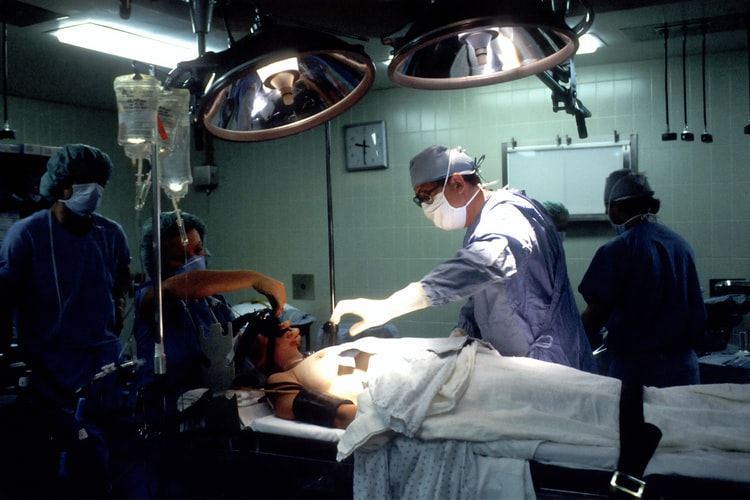Orthopedic surgeons are doctors that treat patients who have physical problems caused by musculoskeletal abnormalities or injuries, some of which include disorders of the spine and limbs, to name a few. They are, therefore, doctors who take care of people of all ages who have experienced pain or accidents that affected their back, legs, or feet or have been born with deformities affecting the spine.
The adult human body comprises 206 bones connected by joints and tissues that may be subject to problematic conditions over time. As our body is made up of different bone structures, it also needs orthopedic doctors specializing in such areas of musculoskeletal vulnerability. To address such cases, orthopedic specialists come to the rescue.
Training and Education
Before an orthopedic doctor in Manila—or any part of the Philippines, and abroad—becomes a surgeon, it takes them more or less 14 years of medical study, and this involves a bachelor’s degree in a related science field, a record of completing medical school, and an orthopedic residency. It is important to ensure that they have completed a fellowship focusing on a special type of orthopedic surgery. By doing so, they have learned the information and techniques specific to orthopedics and can provide a patient with the best care possible. They have a deeper understanding of the body and how it functions, and this knowledge makes them unique to diagnose and treat whatever health problem a patient may have.
When you want to know what you need to know about orthopedic surgeons, you should ask many questions. After all, you don’t want to make a bad decision based on a lack of knowledge. One should also make sure that they are working with a physician who has extensive training in orthopedics because you don’t want to work with a physician who doesn’t have the knowledge or expertise to perform your procedure correctly. It is also important to ask people or medical practitioners for references before you sign any form for any orthopedic surgical services.
Should I see a surgeon or specialist?
An orthopedic doctor in Quezon City or any part of the Philippines starts with knowing the field as a whole then down to its sub-fields. Studying orthopedic sub-fields takes its cue from a body of knowledge about how the body works and the normal conditions it might be subjected to. As such, orthopedic doctors may be surgeons and specialists who focus on treating and preventing conditions that may arise in the body by any means possible.
All orthopedic doctors—either a surgeon or specialist—can assess, diagnose, and treat orthopedic patients using medical procedures that don’t require medical instruments in one’s body. As far as orthopedic surgeons are concerned, just because they are qualified to perform operations does not mean that all their patients need to undergo surgery. For example, when a patient arrives for a check-up, an orthopedic specialist may recommend a person struggling with joint conditions see a joint specialist check the patient’s condition thoroughly. An operation may likely happen if a patient needs surgery and the same joint specialist is also a surgeon.
Remember that all orthopedic surgeons are known as orthopedic specialists, but not all orthopedic specialists are surgeons.
What issues do Orthopedic surgeons attend to?
Orthopedic surgery can cover a wide range of issues. One of these includes treating disorders of the spine, which can result from trauma (accidents, diseases, etc.), diseases, or abnormalities in the bones that can lead to back pain, paralysis, weakness in the legs, and a whole lot of other physical and functional impairments like the following:
· Injuries due to sports
· bone tumors
· hand injuries such as Carpal tunnel and hand arthritis
· babies with bow legs or club foot
· bunions
· osteoporosis and they also check
· muscles
· ligaments
· tendons
· joints, and
· nerves
What are the usual procedures that they do before an operation?
Orthopedic surgeons and the things they do are not much different from what you need to know about other medical doctors and their practices. Before the operation begins, the doctor will talk to you and conduct a physical exam. During this time, orthopedic surgeons will look at your spine and other joints to see if any of them are out of alignment. They will also check the muscles and ligaments to see if they are properly aligned.
You will probably be given a list of possible orthopedic treatments after the examination has taken place. These might include x-rays, CT or MRI scans, and other diagnostic tests designed to find the root of the problem. Then the orthopedic surgeon will discuss the options available to them and which one will best work for your needs.
Most of the work that orthopedic surgeons do may be non-surgical like: recommend exercises that may help maintain a person’s flexibility, motion range, and strength, prevent musculoskeletal strain through splints, braces, or cast, a recommendation for a lifestyle change to prevent a condition, and give over-the-counter prescriptions to help relieve pains that are treatable without having to undergo an operation.
However, some orthopedic surgeons do opt to conduct surgery in cases like the following:
· joint replacement for damaged or diseased joints
· soft tissue repair for muscles, tendons, or ligaments that are severely damaged
· release surgery for carpal tunnel patients
· bone graft to connect two bones to fuse it as one
· Osteotomy to reposition a bone
A patient should keep in mind surgery because orthopedic surgeons often come with complementary orthopedic services. For example, many orthopedic surgeons offer rehabilitation services after orthopedic surgery as well. If you are in pain after your orthopedic surgery, you may get some relief by using rehabilitation. Again, as a reminder, before you decide on any particular orthopedic surgeon, ask for references or contact them before you agree to have orthopedic surgery with them.
Find an orthopedic doctor regarding your musculoskeletal concerns and book your visit through Now Serving.

